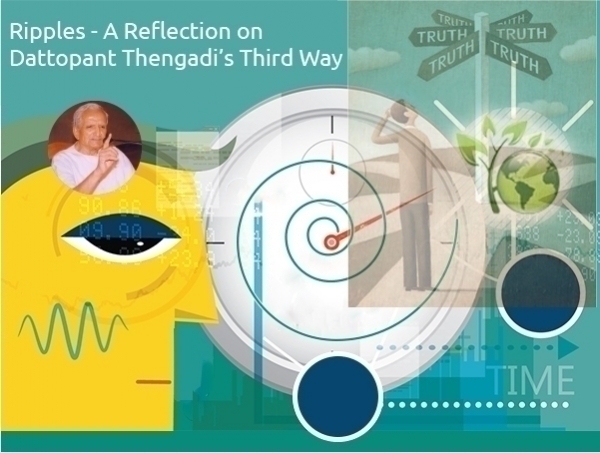Ripples A Reflection On Dattopant Thengadi's Third Way - Part 41
25 Jun 2022 11:00:28
I have been reflecting in my own way on Dattopant Thengadi Ji's Third Way. I present these small "ripples" that it has caused in my mind in a series. I am glad it has found its resonance in many thinking minds alike. I hope the readers have read the earlier article in the series before moving ahead.

'Liberalisation- Free Trade' - Part 2
Dattopant explains that free trade resulted in protection and intervention. The threat by partner countries resulted in forcing them to get greater access to exports from strong countries like U S European Economic Community (ECC)
The US had the policy of protecting the textile industry from 1956. In the 1980s it created barriers to safeguard the automobile industry too.
Also Read: Ripples A Reflection On Dattopant Thengadi's Third Way - Part 40
In Japan, Dattopant describes as a one-way trader. He gave an example that 1990 was the year when its investment outside the country was seventeen times the value of FDI. In a way, its competitiveness was a threat to some industries. US and ECC countries demanded more barriers and protection.
With such fierce competition started the criticism of free trade. When one's interest was in jeopardy the questions started being raised. As long as it was convenient, the theory of free trade was endorsed and accepted as a fair theory.
With competition started the deviations and protection and intervention.
Countries like the US obliged the trade partner countries to change their policies to seek greater market access. The trade legislation of the US spells the intentions clearly. The countries like the US had the priority to protect their national interests. Dattopant gave a detailed picture of the efforts in protecting domestic industries by the US.
Our country definitely attempted to restrict export from the US into the Indian market. 1) Foreign investors were essentially supposed to export a part of its production. They had to use local means too. 2) The service industries were not allowed to compete in our market.
But their build-up was powerful, and the doctrine of liberalization became very popular, as a result; deregulation and privatization gained the required acceptability. The international institutions used it as a necessary condition, third world struggling countries couldn't avoid these conditions.
On the other hand countries like the US violate the principles to safeguard their interest. Many of its policies don't observe the norms laid down by GATT.
Subsidies are granted to the sector like farming and other countries are obliged to withdraw their subsidies. The pharmaceutical sector is no exception to this.